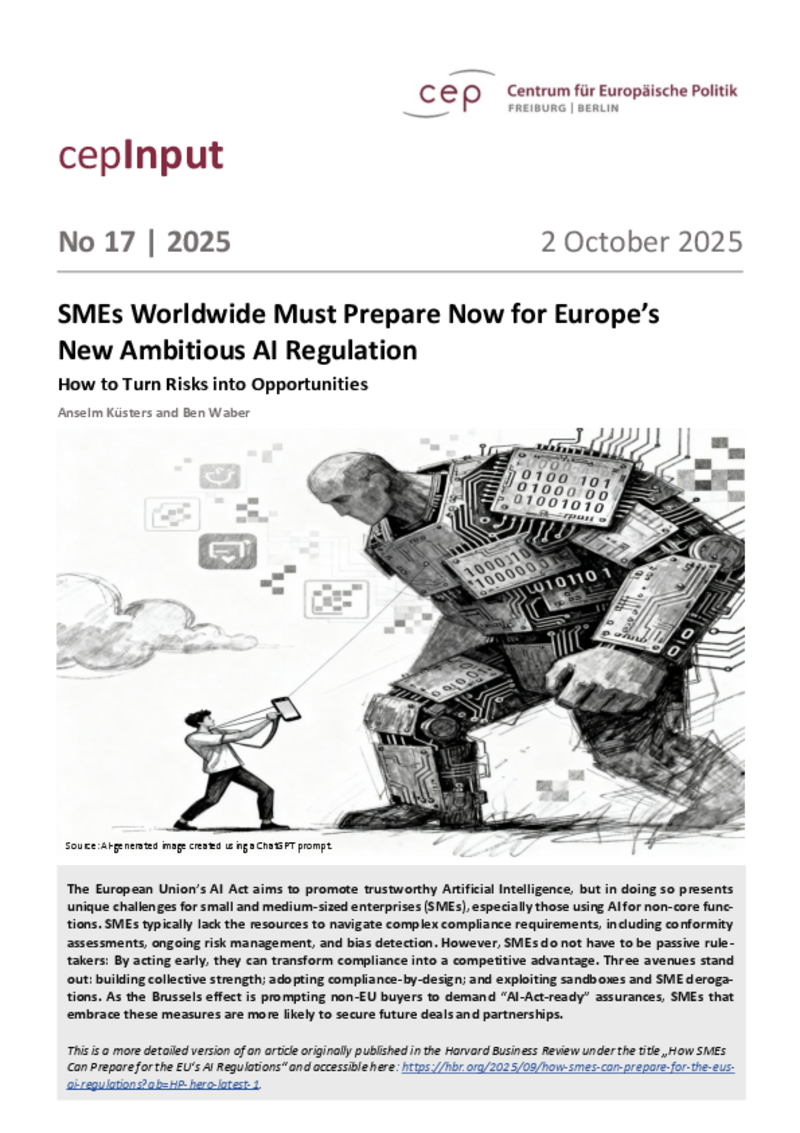
Information Technology
SMEs Worldwide Must Prepare Now for Europe’s New Ambitious AI Regulation
cepInput
The EU AI Act, the European Union's new AI regulation, presents major challenges for small and medium-sized enterprises (SMEs) – but also opportunities. From August 2026, strict rules will apply to AI systems classified as "high-risk", such as tools used for recruiting, credit assessments, or critical infrastructure. Companies that violate these rules face heavy penalties of up to €15 million or 3% of global turnover.
While the EU AI Act may initially seem like an obstacle for companies, those who take proactive action can even turn risk assessment into a competitive advantage. Through cooperation, clear planning, and leveraging EU funding opportunities, SMEs can avoid penalties and open up new business opportunities.
"Systematically analysing training data and its biases, as required by the AI Act, will also help small and medium-sized enterprises to develop better products in the long term," emphasises cep digital expert Anselm Küsters. "Companies that invest in data quality and risk assessment now will ultimately develop more accurate AI systems – a significant advantage for their reputation, especially once the hype surrounding AI subsides."
Download PDF
| SMEs Worldwide Must Prepare Now for Europe’s New Ambitious AI Regulation (publ. 10.02.2025) | 625 KB | Download | |
 | |||



